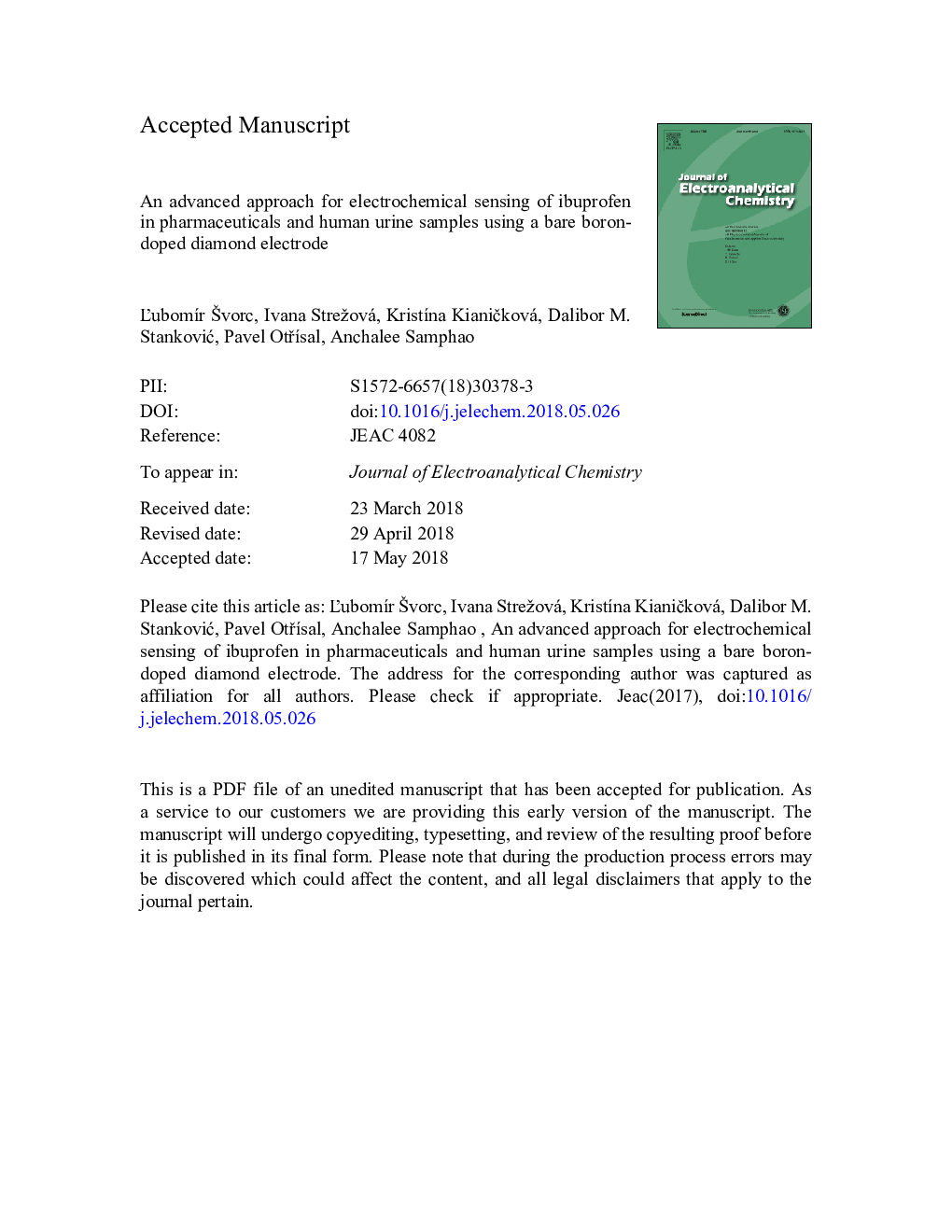| Article ID | Journal | Published Year | Pages | File Type |
|---|---|---|---|---|
| 6661602 | Journal of Electroanalytical Chemistry | 2018 | 42 Pages |
Abstract
Herein, an advanced electroanalytical approach for the determination of ibuprofen based on the use of a bare and electrochemically untreated boron-doped diamond electrode is presented. Cyclic voltammetric study revealed that the electrode reaction of the analyte was manifested by the presence of well-shaped irreversible and diffusion-driven oxidation peak at very high potential (+1.75â¯V vs. Ag/AgCl/3â¯molâ¯Lâ1 KCl reference electrode) in 1â¯molâ¯Lâ1 perchloric acid. After optimization of experimental conditions, the peak current of ibuprofen was proportionally linear from 9.49â¯Ãâ¯10â7 to 6.69â¯Ãâ¯10â5â¯molâ¯Lâ1 providing both differential pulse (DPV) and square-wave voltammetric (SWV) techniques, respectively. The elaborated electroanalytical protocol rendered low detection limits of 4.1â¯Ãâ¯10â7 and 9.3â¯Ãâ¯10â7â¯molâ¯Lâ1 in association with favourable intra-day repeatability (relative standard deviation of 3.6 and 4.6%) using DPV and SWV procedures, respectively. The effect of interfering compounds such as ascorbic acid, dopamine, caffeine, uric acid and glucose on the current response of ibuprofen was explored in details. The usefulness of the proposed approach was verified in the analysis of a variety of commercial brands of pharmaceuticals and spiked human urine samples with the significant range of recovery percentages (for pharmaceuticals: 99.8-107.5% and 99.8-105.0% by DPV and SWV, for urine: 95-107% and 97-103% by DPV and SWV). Taking these features into account, the developed protocol may be exploited as a novel, simple and efficient tool in drug quality control analysis and analysis of biological samples. In addition, a bare and electrochemically untreated boron-doped diamond electrode may be applied as a progressive electrochemical sensor and helpful alternative to previously utilized electrochemical platforms in this field.
Keywords
Related Topics
Physical Sciences and Engineering
Chemical Engineering
Chemical Engineering (General)
Authors
ĽubomÃr Å vorc, Ivana Strežová, KristÃna KianiÄková, Dalibor M. StankoviÄ, Pavel OtÅÃsal, Anchalee Samphao,
